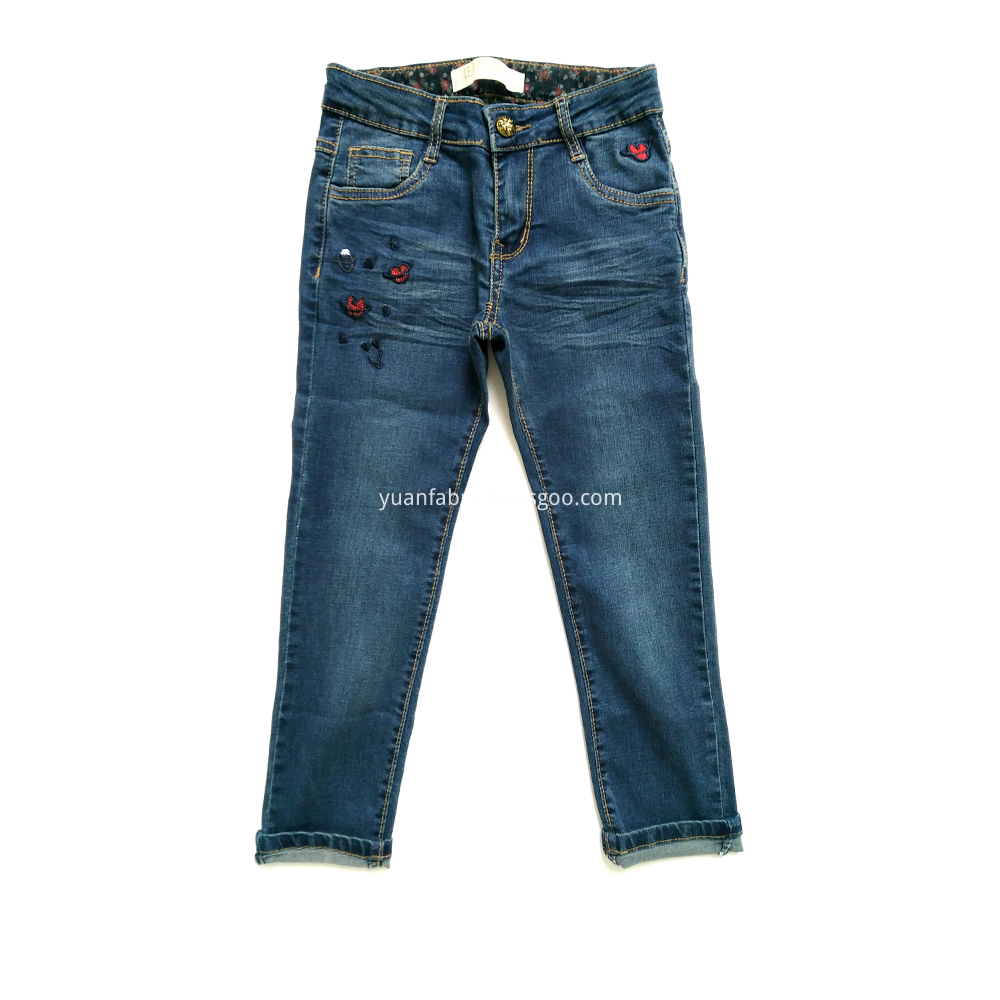Lexington-------The meaning of blue jeans
Denim's history suggests that American attitudes to work are more complex than they seem.
In an interview near the end of his career the fashion designer Yves Saint Laurent confessed to a regret: that he had not invented blue jeans. [They have expression, modesty, sex appeal, simplicity," sighed the owlish Frenchman. [All I hope for in my clothes." American denim-lovers might add other attributes. As far back as the 1930s, when the popularity of cowboy films helped jeans make the leap from workwear into the wardrobes of Hollywood stars, denim has been understood to stand for something larger about the American spirit: for rugged individualism, informality and a classless respect for hard work.
[Deep down in every American's breast-is a longing for the frontier," enthused Vogue magazine in 1935, advising readers on how to dress with true [Western chic" (combine jeans with a Stetson hat and [a great free air of Bravado," it counselled). Levi Strauss & Co., the San Francisco firm which invented modern blue jeans in 1873, saw sales boom after it crafted posters showing denim-clad cowboys toting saddles and kissing cowgirls.
Jump to the 1950s and 1960s, and American consumers learned the heroic history of denim from nationwide magazine and television advertising campaigns. They were told that the tough blue cloth began life as [Serge de Nîmes", in the French town of that name, and was used by Columbus for his ships' sails, before outfitting the pioneers who tamed the West. In a country so often riven by culture wars, jeans crossed lines of ideology, class, gender and race. Presidents from Jimmy Carter onwards have worn denim when fishing, clearing brush or playing sports to signal their everyman credentials-though Barack Obama has endured mockery for donning capacious jeans that he later conceded were [a little frumpy".
The popularity of clothing invented to survive hard labour is of topical interest in America, a country gripped by election-year debates about blue-collar, working-class voters, and whether their interests have been ignored by ruling elites. Ms McClendon argues, persuasively, that much of what Americans think they know about denim draws on a set of [origin myths", crafted and disseminated by manufacturers over many years, both individually and in campaigns run by the Denim Council, an industry group of clothing-makers and textile mills that was active from 1955-75. The council, whose papers are now in the FIT's archives, was formed after jeans-clad motorcycle gangs and such films as [The Wild One" and [Rebel Without a Cause" led to something like a nationwide panic about denim and its unseemly effects on young bodies and minds. Committees of denim manufacturers and advertising executives set out to combat [anxieties over juvenile delinquency". Wholesome films about jeans appeared on over 70 television stations, and [How It All Began" cartoons ran in newspapers, tracing the origins of denim back to medieval Europe. From the late 1950s Levi Strauss & Co. ran advertisements and a letter-writing campaign urging schools to allow students to attend classes in denim. Their pitch combined images of clean-cut, studious children in jeans with such slogans as [Right for School", explains Tracey Panek, Levi's company historian.
Quite a lot of this marketing was hokum, or close to it. There is no evidence that Columbus crossed oceans under billowing denim sails, while the latest research is that the term [denim" may have been invented in England. Perhaps most strikingly, relatively few cowboys wore blue jeans at the height of the Wild West, Ms McClendon says: canvas and leather trousers were also common. Denim was mostly worn by small farmers, field-hands, labourers and miners-some of the oldest pieces in the archives of Levi Strauss & Co. were found in disused mines in California and Nevada (there is a whole world of denim-hunters out there, willing to endure much hardship to find a pair of 1880s Levi's).

Material: Men`s 100% cotton
Color: According to buyer requirements or samples
Texture: Twill, vertical slub, cross slub
Labeling: Main label, washing label, care label, size label, flag label, metal label
Fit :Regular, slim, super slim
Leg:Narrow, Tapered, Straight, Boot cut, Flare, Loose
Size:W25-W34
Additional
1)Not chlorine bleaching
2)Not ironing
3)Not hot water
4)Airing
5)Can dry-clean
Women'S Cotton Capris,Women'S Organic Cotton Capris Jeans,Women'S Cotton Spandex Capris Jeans,Women'S Cotton Capris Jeans
Dongguan Zhongtang yu' an Weaving factory , https://www.yuanfabric.com
没有评论:
发表评论